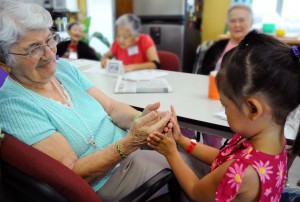Florence provided this truly useful list of lessons for living – from the perspective of the tenth decade of life!
I am a 91-year-old single woman but my life experience has been a little different. My second job after college was as a worker in a children’s home. Among my children was a little girl who came to me at 21 months. After taking care of her for several years she needed a permanent home. I adopted and raised her. Later four teenagers of her large family came to to live with me and finish school. All are married but we are still very close. So, with grandchildren, great grands, and a couple of grea- greats I have a big family.
Here’s a summary of the lessons I have learned:
Get control of your finances. This will require careful planning and willpower. Accept that you can’t have everything- at least right away. Decide on the essentials, a place to live, utilities, food, etc.
You need a checking account and a savings account. Take each paycheck to the bank and deposit, don’t cash it. Hold out enough for cash purchases, groceries, etc. Leave enough in the checking account to pay current bills. Whenever possible, put a little in the savings account. This is your emergency fund for unexpected expenses and a start toward your savings.
Be wary of credit cards. Never use one unless you can pay the bill in full at the end of the month. The interest can be devastating to your finances.
Aim toward home ownership. Rent is a constant drain with nothing to show for it.
For major purchases, save first and pay cash. This goes for cars and it can be done. As soon as I’ve bought a car, I start saving (in the savings account) for the next. Making payments adds much more to the cost. That money can be yours to use.
When you have your finances organized and are keeping out of debt you are ready for the next step. Start your life savings. It is all right to start small but you can’t start too soon. Locate a full service brokerage firm that is a member of the New York Stock Exchange. Request an appointment with a financial adviser, who will
listen to your needs and advise accordingly. Medium risk stock will likely serve you best. Later you can use the dividends for extra income. If you keep increasing your stock portfolio, it will provide financial security for retirement. Never buy stock from a small outfit that only deals with a limited type of stock or on advice of an individual.
Friends are your support group. They are the people with similar interests with whom you share your joys and sorrows. They may be near or far. Maintaining the ties may mean letters, phone calls, or an occasional visit. Be willing to do your part. The friendship will deepen over the years.
Also be open to making new friends. I treasured my lifelong friendships but I have outlived al of them. Because I made new, and much younger, friends when I moved to a new area I still have good friends.
Develop hobbies. Friends are great but it is important to develop interests and hobbies you can pursue alone. I garden, sew, walk, read, do genealogy, care for my pet cats, feed the birds and squirrels, take part in church activities, camp, and travel. The days are never long enough. I still have and drive my small motor home but I’ve run out of traveling companions so I take it to a nearby campground and travel more by air. I take trips with a purpose. I’ve been on mission trips to Mexico three times, to the Oberammergau Passion Play, to Africa with a small local group and last fall a wonderful trip to Peru with Heifer International.
Find a church. If you are not already connected with a church, look for one where you are comfortable with the beliefs and find people with whom you are congenial. Regular church attendance provides stability and deepens your spiritual resources. It is also a good place to find friends.
 We love the elders’ lists of their advice for living – and readers tell us they wind up on refrigerators across the country!
We love the elders’ lists of their advice for living – and readers tell us they wind up on refrigerators across the country!



